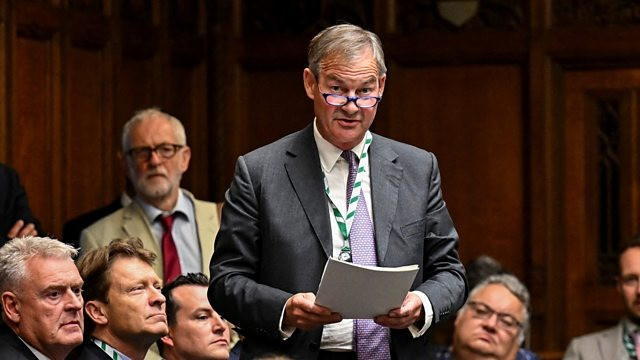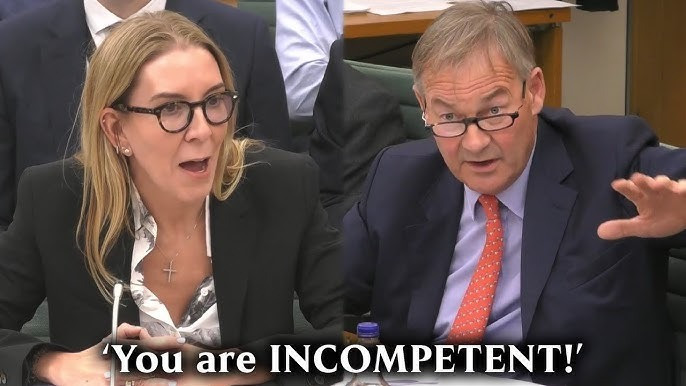Rupert Lowe has erupted in a fiery exchange with a senior civil servant over the Home Office’s alarming failure to provide critical data on illegal migration, exposing a deepening crisis in accountability and transparency. During a parliamentary committee hearing, Lowe’s frustration boiled over as he challenged Permanent Secretary Dame Antonio Romeo on why the Home Office has failed to collect or report essential data regarding migrants absconding from government accommodation.
 Lowe, who has submitted over 610 questions to the Home Office since the last election—90% of which were data-related—revealed a shocking pattern of evasive responses. “There is no data or it is not centrally collected,” he stated, emphasizing the unacceptable nature of such a situation for a department responsible for national security. His pointed inquiry about the number of illegal migrants who have gone missing from Home Office facilities over the past five years was met with a vague reference to a forthcoming report, igniting Lowe’s ire.
Lowe, who has submitted over 610 questions to the Home Office since the last election—90% of which were data-related—revealed a shocking pattern of evasive responses. “There is no data or it is not centrally collected,” he stated, emphasizing the unacceptable nature of such a situation for a department responsible for national security. His pointed inquiry about the number of illegal migrants who have gone missing from Home Office facilities over the past five years was met with a vague reference to a forthcoming report, igniting Lowe’s ire.
“This is unbelievable,” he exclaimed, underscoring the public’s demand for transparency. “How can you claim to improve productivity when police forces are being burdened with immigration tasks, yet you don’t measure or report on it?” The exchange highlighted the growing frustration among MPs and citizens alike, who are increasingly concerned about the implications of undocumented migrants on policing and public safety.
 Lowe’s insistence on accountability cut to the heart of the matter: how can any government agency effectively manage migration and public safety without basic data? He pointed out that police forces are already collecting this information independently, meaning the data exists—it simply isn’t being reported by the Home Office. His demands for a commitment to publishing this data were met with the same bureaucratic refrain: “The report will be published in due course.”
Lowe’s insistence on accountability cut to the heart of the matter: how can any government agency effectively manage migration and public safety without basic data? He pointed out that police forces are already collecting this information independently, meaning the data exists—it simply isn’t being reported by the Home Office. His demands for a commitment to publishing this data were met with the same bureaucratic refrain: “The report will be published in due course.”
The hearing revealed a troubling culture within the Home Office, characterized by delays and a lack of ownership over critical information. Lowe’s assertion that “you can’t run a business without knowing the data” resonated deeply, as he likened the Home Office’s chaotic approach to that of an unmanageable enterprise. Without accurate data, he warned, the department cannot track absconders, measure pressure on local services, or ultimately protect the British public.
 As the hearing concluded, it became painfully clear that the Home Office’s data crisis is not just a bureaucratic failure; it is a significant threat to public safety and trust. The British people deserve answers, and until the Home Office changes its approach, the gap in accountability will only continue to widen. This explosive exchange serves as a stark reminder of the urgent need for transparency in government, especially regarding issues that directly impact national security and community safety.
As the hearing concluded, it became painfully clear that the Home Office’s data crisis is not just a bureaucratic failure; it is a significant threat to public safety and trust. The British people deserve answers, and until the Home Office changes its approach, the gap in accountability will only continue to widen. This explosive exchange serves as a stark reminder of the urgent need for transparency in government, especially regarding issues that directly impact national security and community safety.





